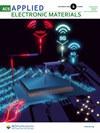Caffeic Acid Phenethyl Ester Administration Reduces Enterotoxigenic Bacteroides fragilis-Induced Colitis and Tumorigenesis
IF 4.3
3区 材料科学
Q1 ENGINEERING, ELECTRICAL & ELECTRONIC
引用次数: 0
Abstract
The human colonic commensal enterotoxigenic Bacteroides fragilis (ETBF) is associated with chronic colitis and colon cancer. ETBF colonization induces colitis via the Bacteroides fragilis toxin (BFT). BFT secreted by ETBF cause colon inflammation via E-cadherin cleavage/NF-κB signaling. ETBF promotes colon tumorigenesis via interleukin 17A (IL-17A)/CXCL-dependent inflammation, but its bioactive therapeutics in ETBF-promoted tumorigenesis remain unexplored. In the current study, we investigated the caffeic acid phenethyl ester (CAPE) in the murine model of ETBF colitis and tumorigenesis. In this study, we observed that CAPE treatment mitigated inflammation induced by ETBF in mice. Additionally, our findings indicate that CAPE treatment offers protective effects against ETBF-enhanced colon tumorigenesis in a mouse model of colitis-associated colon cancer induced by azoxymethane (AOM) and dextran sulfate sodium. Notably, the decrease in colon tumorigenesis following CAPE administration correlates with a reduction in the expression of IL-17A and CXCL1 in the gastrointestinal tract. The molecular mechanism for CAPE-induced protection against ETBF-mediated tumorigenesis is mediated by IL-17A/CXCL1, and by NF-κB activity in intestinal epithelial cells. Our findings indicate that CAPE may serve as a preventive agent against the development of ETBF-induced colitis and colorectal cancer (CRC).服用咖啡酸苯乙酯可减轻肠毒性脆弱拟杆菌诱发的结肠炎和肿瘤发生
人类结肠共生菌肠毒性脆弱拟杆菌(ETBF)与慢性结肠炎和结肠癌有关。ETBF 的定植通过脆弱拟杆菌毒素(BFT)诱发结肠炎。ETBF 分泌的 BFT 通过 E-cadherin 裂解/NF-κB 信号传导导致结肠发炎。ETBF通过白细胞介素17A(IL-17A)/CXCL依赖性炎症促进结肠肿瘤发生,但其在ETBF促进肿瘤发生过程中的生物活性疗法仍有待探索。在本研究中,我们研究了咖啡酸苯乙酯(CAPE)在小鼠 ETBF 结肠炎和肿瘤发生模型中的作用。在这项研究中,我们观察到 CAPE 治疗可减轻 ETBF 诱导的小鼠炎症。此外,我们的研究结果表明,在偶氮甲烷(AOM)和葡聚糖硫酸钠诱导的结肠炎相关结肠癌小鼠模型中,CAPE 治疗对 ETBF 增强的结肠肿瘤发生具有保护作用。值得注意的是,服用 CAPE 后结肠肿瘤发生的减少与胃肠道中 IL-17A 和 CXCL1 表达的减少有关。CAPE 诱导的防止 ETBF 介导的肿瘤发生的分子机制是由 IL-17A/CXCL1 和肠上皮细胞中的 NF-κB 活性介导的。我们的研究结果表明,CAPE 可作为一种预防剂,防止 ETBF 诱导的结肠炎和结直肠癌(CRC)的发生。
本文章由计算机程序翻译,如有差异,请以英文原文为准。
求助全文
约1分钟内获得全文
求助全文

 求助内容:
求助内容: 应助结果提醒方式:
应助结果提醒方式:


